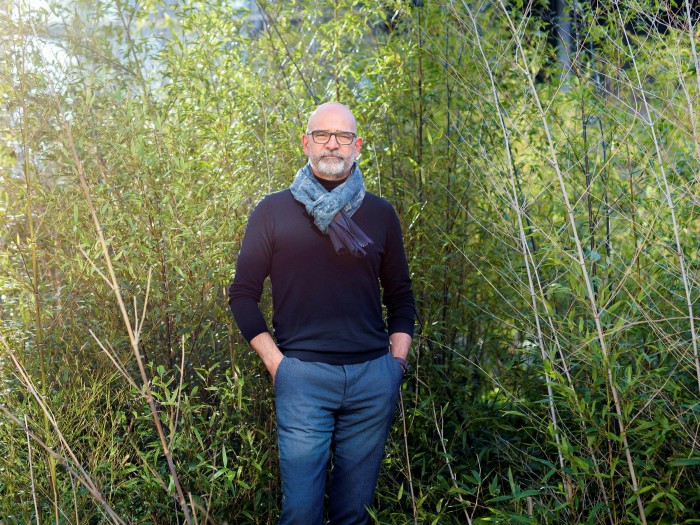Leaders learn tough lessons about resilience

Roula Khalaf, Editor of the FT, selects her favourite stories in this weekly newsletter.
Dominique Steiler likes to begin his executive education classes by asking participants to stand up and read poetry aloud. This catches them off guard: many feel nervous, stressed or afraid.
Yet, by confronting strong leaders with their own vulnerabilities, Steiler — director of the research chair in mindfulness, wellbeing at work and economic peace at France’s Grenoble Ecole de Management — believes he can foster traits such as empathy and emotional intelligence. Once dismissed as “soft” skills, these are now commonly seen as essential leadership qualities. They have come into sharper focus amid concerns about corporate wellness during the Covid-19 pandemic, the pressures of remote working and, more recently, the war in Ukraine.
“Leaders tend to want to project strength and confidence but the pandemic has exposed our fragilities,” says Steiler. “Once you strip off that armour, you can empathise, communicate and collaborate much better. Vulnerability is not a weakness, it’s a strength.”
Executive education providers are increasingly putting such skills at the forefront of leadership development. Steiler, a former fighter pilot officer with the French navy, teaches several custom programmes for corporate clients on how leaders can take care of themselves and others.
The pandemic is boosting demand for leadership capabilities such as empathy and compassion, as the stigma around mental health problems is reducing. In Sydney, the Australian Graduate School of Management’s “Leading with Resilience” course is now oversubscribed and runs more frequently, despite mounting demands on leaders’ time.

“Just when we clawed back some semblance of normality, after more than two years of chaos during the pandemic, we now have to get our heads around a war in Europe, along with soaring inflation and an energy crisis,” says Karen Rodrigues, the programme’s director. “There is a growing recognition of the toll this is taking on leaders, who need to heal and repair.”
AGSM’s course helps participants manage stress and burnout through meditation and mindfulness, as well as improving sleep quality and positively reframing challenging situations. Once stigmatised, self-care is critical, says Rodrigues: “You can’t pour from an empty cup.”
Deloitte estimates the annual cost of poor mental health to UK employers has increased, rising to £56bn in 2020-21 compared with £45bn in 2019. Mental health problems are one driver of the “Great Resignation”, with long hours, increased stress and job insecurity causing people to change occupations in larger numbers.
Coping with new pressures requires a human touch, says Sally Maitlis, professor of organisational behaviour and leadership at the University of Oxford’s Saïd Business School.
“We are already moving beyond ‘command and control’, or leading through authority and fear,” she says. “It’s a moral imperative, but it’s becoming a business imperative. If you have people in your organisation who feel supported and can bring their whole selves to work, that allows them to be more engaged, proactive and productive employees.”
Maitlis is academic director of the Oxford High Performance Leadership Programme, which includes a strong resilience and wellbeing component. Among last year’s participants were the executive team of StepChange, a debt charity in the UK. Lorna Allan, chief information officer, says the programme was directly relevant to her role, citing her company’s efforts to promote wellbeing in the workplace.
“We have over 900 colleagues on the front line dealing with vulnerable individuals, and we’re seeing more of them present with mental health issues because of multiple crises happening in society,” she says. “As leaders, we need to care for ourselves and our colleagues.”
A key lesson from the Oxford course was the importance of taking regular breaks throughout the day to recover from work stress.
“We all have to find ways to decompress,” Allan says. “Sometimes you have to slow down to speed up.” In addition, StepChange has introduced “mental health first aiders”, employees who are trained to spot signs of stress in their colleagues and provide support and guidance. “We’re seeing a more human side to the organisation,” says Allan.
Maitlis concedes that some time-poor executives appear apathetic towards developing social and emotional skills on top of traditional leadership traits. Other professors question whether that can be achieved from one-off short programmes, or if business schools have the requisite psychology expertise among teaching staff.
“What varies is how seriously this stuff is taken by the faculty: often, finance is seen as the core piece of the curriculum,” says Maitlis. “The attitude from participants can range from just ignorance, to fear and anxiety that there are all these complicated interpersonal skills, to hubris. Some business schools haven’t seen it as the priority it is today and haven’t conveyed that to students.”
Attitudes are changing, though: in response to the pandemic, London Business School (LBS) launched a course called “Building Resilience and Agility” in May 2020 that aims to nurture the capabilities to help leaders motivate people during difficult times.
“A few years ago, people would have looked at this with a bit of cynicism and asked, what has this got to do with financial results?” says Kathleen O’Connor, clinical professor of organisational behaviour and director of executive education at LBS. “But with so many executives and their employees experiencing burnout, people are more receptive to it.”
LBS emphasises the importance of taking learning beyond theory to ensure real-life application. The school helps participants understand what burnout means neurologically, but also how to recognise the symptoms, and how to mitigate the effects through instilling a sense of autonomy, belonging and competence in the workforce. “The onus is on leaders to create the conditions that enable their people to thrive,” says O’Connor.
Comments